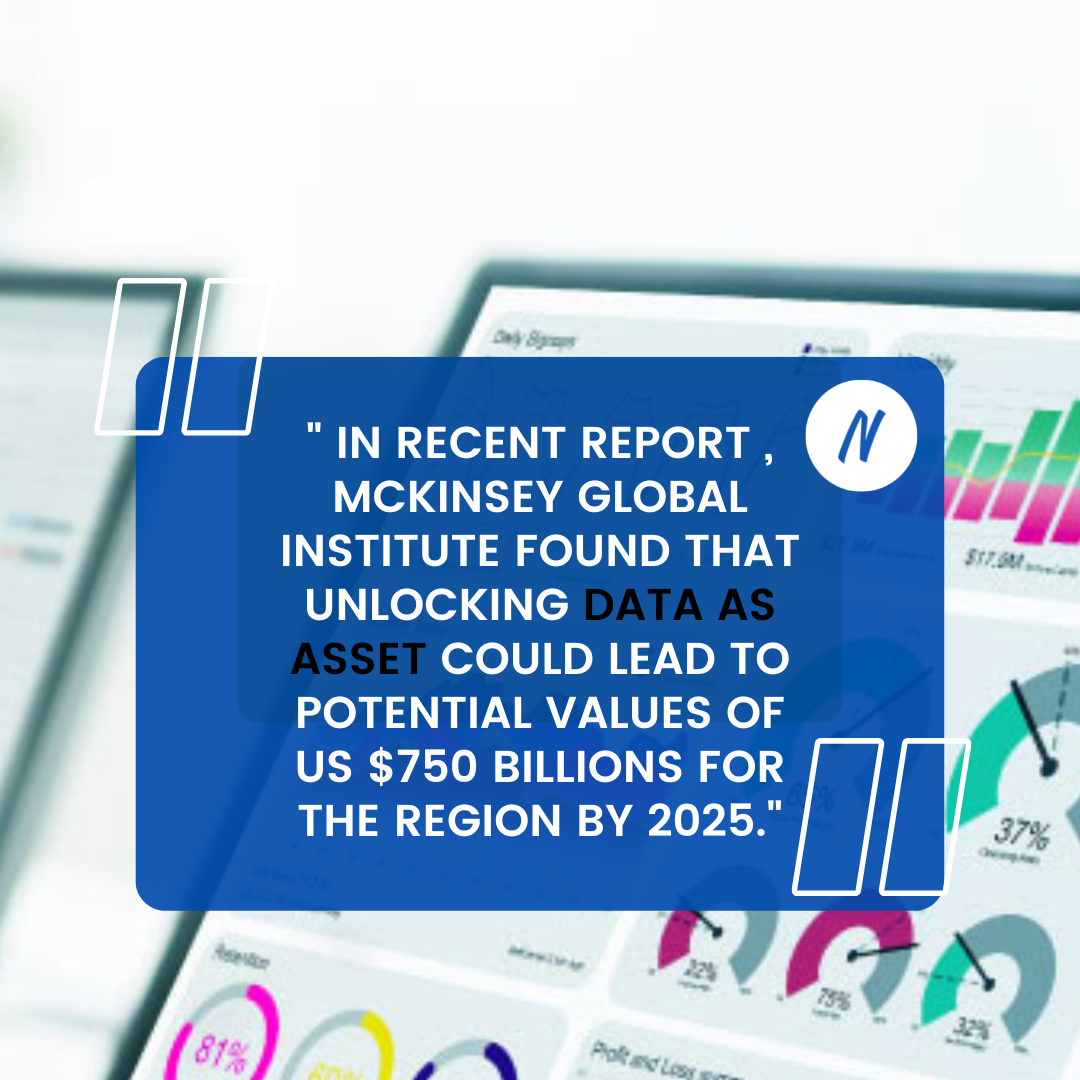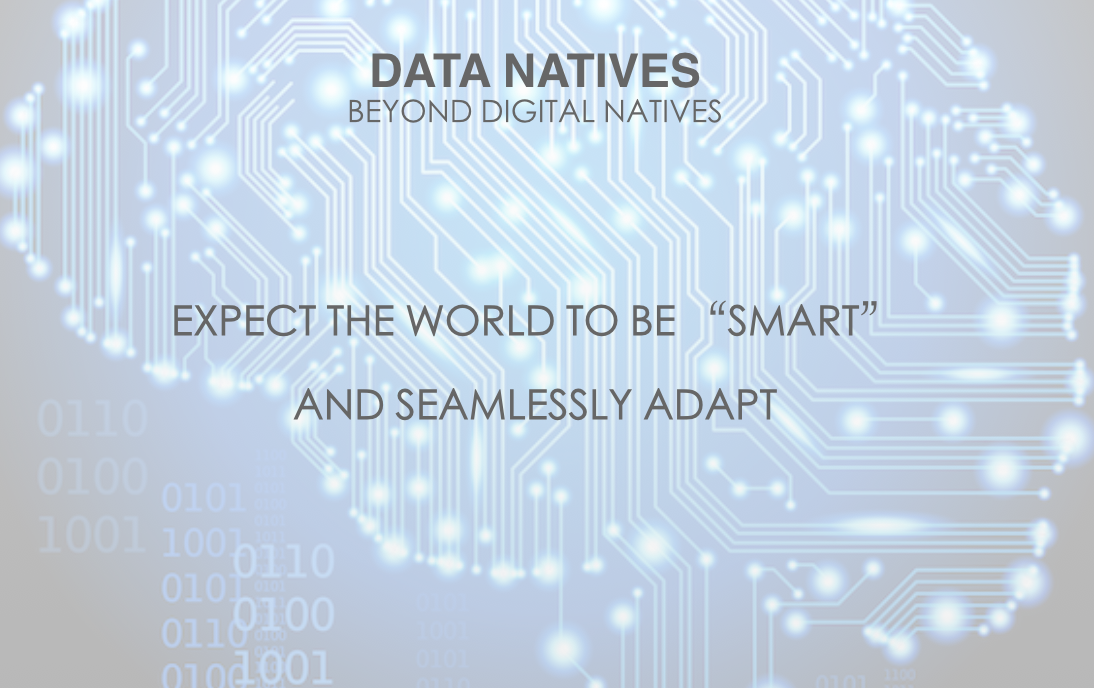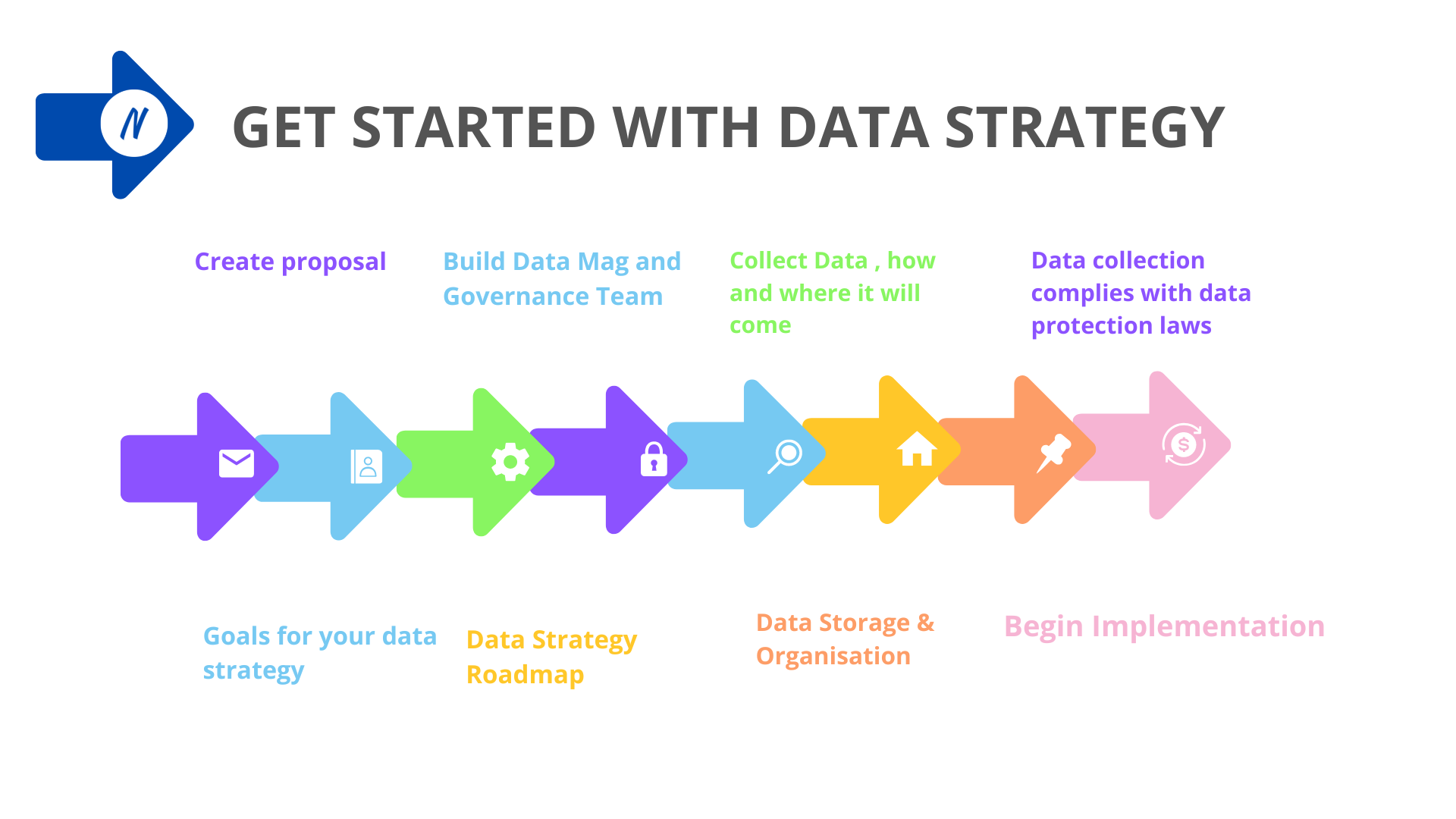The Guide To Data Strategy For African Businesses.
Many African Businesses collect raw data today — However data by itself won't optimize and improve business. Hence African Businesses Leaders need an efficient data strategy that turns data into value to enable stay competitive and profitable.

Digital transformation and data-driven strategies are no longer a trend but an inevitable part of doing business in this digital age, currently well known as “ Data 4.0 ”. Many industry experts say data is the most valuable resource in the modern economy — some even go so far as to describe it as the “new oil.” or " lifeblood " of any business.
As most African businesses increasingly embrace technology, data is emerging as essential for growth-oriented efforts such as those caused by AI / ML and innovation for every African business. But now Data is no longer just a byproduct of running a business – it’s a vital asset that can drive decision-making and processing (and revenue).

Therefore to remain highly competitive and survivor, it’s imperative to implement a “ DATA STRATEGY ”, that defines data as an “ Assets of business “, unlocking new value for your business, such as operational efficiency, process optimization, faster decision-making, increased revenue streams, and improved customer satisfaction….
Even so, there are still far too few African Businesses using data to their advantage, this comprehensive guide covers everything you need to know on moving to data-centric business models, to enable African Business Leaders to turn their data into data capital and be "Data natives". Let’s dive in!

WHAT IS DATA STRATEGY?
Business leaders are working to effectively manage a variety of risks – including economic, compliance, financial, and competitive risks, your organization's data and the system that processes it, play a critical role to reduce these key business risks.
Thus, Data strategy simply describes how the end goals of a business will be achieved by means of data.?, it defines the technology, processes, people, and governance required to collect, store, secure, manage, monitor, analyze, consume, integrate, share and most important act on your own data to meet the required business goals, and move from Buy-in decisions to Built-in decisions for long term vision to unlock new value for your organization.
To that end, a data strategy helps to ensure a business’s data is treated as an asset by managing and using your organization's data, defining goals and objectives for effective and efficient data usage across departments and projects, and ensuring it is privacy compliant.
Myth: Data strategy is either a case of “boiling the ocean” or else an “infinity project” that will deliver little value
Creating a data strategy is both achievable and valuable. It helps business leaders to optimize their technology investments and lower their costs. It treats data as an asset from which valuable insights can be derived and integrated into business operations to gain a competitive advantage. It's what differentiates a successful business from the rest.
WHY DO NEED A DATA STRATEGY FOR AFRICAN BUSINESS?
There are many reasons why African businesses need to develop data strategies, but they all boil down to the same thing: data is a crucial business asset and should be handled as such.
1). On a business level, data strategy can:
✶ Help removes slow and inefficient business processes.
✶ Help promotes Data privacy, data integrity, and data quality issues that undercut your ability to analyze data.
✶ Help removes a lack of deep understanding of critical parts of the business (customers, supply chain, competitive landscape, etc.) and the processes that make them tick.
✶ Reduce a lack of clarity about current business needs (a problem that descriptive analytics can help solve) and goals (which predictive and prescriptive analytics can help identify).
✶ Help handle Inefficient movement of data between different parts of the business, or duplication of data by multiple business units
Generally, Data Strategy defines how the business can meet its goals using its data, without a data strategy a business is poorly positioned to operate efficiently and profitably or to grow successfully.
2. But there are also other, broader advantages that are:
✶ It unlocks the value of data generated in Africa, this provides guidance on how to utilize, manage, and share data that will have a tangible real impact on our continent, and smooth the advanced innovations such as that driven by Machine Learning and Artificial Intelligence which conventional technologies are unable to perform.
✶ Data strategy effectively handles the vast amount of data available to Africa, recent CEO, of Zindi Africa - Celina Lee said " With the digitization of everything from financial services to logistics to even the provision of public services, Africa is becoming more data-rich than ever.", therefore managing, storing, and using it becomes increasingly challenging, and so business needs comprehensive data strategy that sets standard tools to handle the data. such as data warehouse, and data lake.
✶ Data strategies solve wide data challenges, it's efficient in solving long-term data problems, such as those that occurred in different departments, Building data strategy ensures data management is improved across Africa by enabling various departments to work in alignment with one another, rather than against each other.
✶ Data strategy prevent data silos, which occurs when business are unable to share data with other due to technology or organizational structure, data silos prevent the creation of accurate machine-learning models in African businesses, limit collaboration between departments, and finally affect marketing ROI.
We’ve made many mistakes exporting raw materials and then importing final products back into the region. We should not repeat the sins of the past and ship our data off to be beneficiated elsewhere ~ Malan
Generally, For the African continent, it is crucial to have the capacity to use data to inform important choices, prevent and mitigate calamity before it occurs, and locate economic prospects.
WHO BUILDS DATA STRATEGY IN AN ORGANIZATION?
Upper management, business analytics, and IT departments often have members on the data strategy team. Here are some instances of users working together to develop and put into practice a data strategy.

Data engineers: These are in charge of creating a solid and effective data architecture. They supervise and manage a variety of data pipeline operations, including data gathering, processing, storing, and analytics. Specialists who carry out data security and governance requirements play this job.
Data scientists: These utilize the data that data engineers have prepared for analysis. They utilize the data to build various ML models and produce business intelligence reports.
Data analysts: Data interpretation and analysis are a specialty of data analysts. To make sure that business intelligence duties are in line with organizational requirements, they closely collaborate with data scientists.
Business managers: Business managers go to data reports and support data operations management. They make sure the data strategy complies with legal standards as well as the broader corporate plan.
When coordinating roles, consider everyone in the organization who uses data in any way, even if working with data is not a primary part of their job responsibilities, remember that Data strategy invokes DATA CULTURE, it aligns data management to business strategy.
HOW TO GET STARTED WITH DATA STRATEGY IN AN ORGANIZATION?
The most critical step to enabling data at scale is to develop a comprehensive and executable strategy for how your organization will leverage people, processes, platforms, or technology to drive measurable business results, here I have suggested the following steps to create an actionable data strategy.

Create a proposal to attain organizational Buy-in. That needs approval for implementation: this includes executives as well as those lower on levels of command who’ll also need resources allocated, it should show how it benefits the organization.
You'll also need support from department leads, technology partners, and any other staff members that utilize or manage big amounts of data, in addition to top-level organizational leadership. Gaining as much support as you can is essential because the more people who engage with your approach, the more likely it is to succeed.
Build Data Management and Governance Team. This should include senior-level managers and department heads, alongside people from various departments – including those knowledgeable about technological and organizational capabilities.
This establishes who is in charge of things like making sure data privacy standards are followed, ultimately responsible for allocating resources, managing data-related issues, and informing staff of changes to policies. Roles that are clearly defined assist to guarantee that critical activities are completed while encouraging a sense of responsibility.
Planning on the data you want to collect, why & where It will come from. It is more probable that you will only acquire the right, relevant, and essential data if you specify which data you need to collect, what purpose it serves, and where it will be obtained.
Make certain that your data collection complies with data protection laws. Marketing compliance plan actions may be incorporated inside your data strategy to adhere to privacy and security standards.
Marketing compliance strategies should begin with a documented approval process that ensures that data collection complies with legal and ethical obligations, followed by the departmental collaboration to ensure that everyone is using the same procedures, and ending with an actionable compliance checklist that provides users with options like "opt-out" choices.
Ensure goals for your data strategy. This will help Different departments to specify targets for each area using data techniques. Senior management and data management teams can use specific, short-term, and long-term objectives that are attainable and measurable in implementing data strategy such goals are Innovation, addressing risk, and regulations as well as the needs of the users.
Create Your Data Strategy Roadmap. When objectives are decided upon and established, the following step is to lay out a strategy for how the organization will attempt to attain them. Your data strategy's roadmap is comprised of these plans.
Your data strategy roadmap will describe your overall long-term goals and vision, as well as the more specific short-term objectives that will help you get there.
Data Storage & Organisation. This is another key step to consider, These particular elements of data management are vital in data strategy because they dictate how actionable and shareable your data is.
To that end, the goal in creating any data storage and organization plan is to ensure data remains accessible, shareable, and actionable for all parties that need it. A good rule of thumb is to store the data in an easily accessible system and in a consistent format to prevent silos.
Voila! Begin Implementation. Once your goals are in place, and your data roadmap is laid out, your data strategy is ready for implementation.
You may put your data strategy into practice and take action, however it should be continually examined and modified based on how the business is doing in achieving its objectives because it is not a one-time deployment., Remember data strategy invokes Data Culture..., Remember data strategy invokes Data Culture !!
USE CASE DATA STRATEGY: CUSTOMER CARE TEAM
Scenario overview
Results from a survey from a customer care team in a B2C business provided feedback that customer support representatives are currently unsatisfied and frustrated with the amount of information they can access about customers. A new competitor has recently come online and early reports indicate that the customer account view is much more seamless and detailed than the existing businesses.
Data strategy(How)
Using a data strategy, the business will enable its customer support reps to see a 360° view of their accounts.
Data strategy(Why)
A data strategy will use customer data to develop unified, comprehensive profiles that make it simple to get required consumer data. To better serve a client, a support agent would be able to rapidly and correctly get information about a customer's payment history, purchase history, current goods they are ordering, and delivery statuses.
The Overall Value to the Organisation
The business receives higher customer satisfaction levels, lowers customer support costs, and increases sales by reducing the lengthy support process needed to ascertain the desired information.
BOTTOM LINE: So, there you have it – the what, how, why, and use case of data strategy.
Building executable and comprehensive Data strategy in African Business will enable us to successfully deploy modern data innovations thus of AI/ML, unlock the full potential of data, efficient collaboration among industries and government, stay competent in the world digital economy, and future-proof investment to provide the greatest ROI.
If you need help putting these into practice, or want to discuss your specific needs in more detail, book a consultation with Neurotech Africa and get in touch with us. We’d be happy to chat with you about moving to a data-centric business model and help kickstart your data strategy and make sure it transforms you into innovation.


